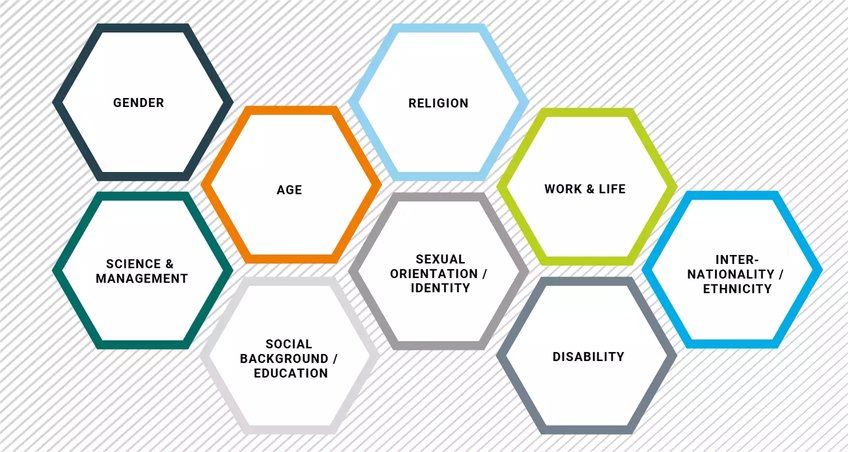Equal Opportunities
Talent, creativity and passion - that's what the Max Planck Society relies on. It supports all employees equally. Because research needs diversity. This is also formulated in the Code of Conduct, the core values of the Max Planck Society: "We treat each other with respect and do not tolerate any form of discrimination based on ethnicity, gender, disability, religion or belief, age, sexual orientation or identity." With that, the Code of Conduct identifies the nine key areas that comprise the understanding of diversity. An open, international, diverse and inclusive work culture lays the foundation for the cutting-edge research conducted at the 86 Max Planck Institutes.

The current 15 local diversity groups, for example, are working at their respective institutes to promote more diversity and inclusion in everyday work. The number of groups is growing steadily.
Cultural Diversity Conference
Aspects such as racism and discrimination were the focus of the digital Max Planck event Cultural Diversity Conference - Overcoming cultural misconceptions and enhancing ethnic diversity at Max Planck Society in December 2021. There, topics such as white supremacy in Germany and in research, anti-discrimination and anti-racism strategies, micro-aggression, and ways to promote an inclusive and welcoming work environment were discussed.
Access for all
Access for all, which also means hiring more people with a severe disability (scientific and non-scientific). To achieve this goal, the framework integration agreement was revised, with the strategic orientation from individual to social model of severe disability. We want to further improve accessibility and inclusion in everyday work. Here, "digital inclusion" is increasingly coming into focus.
LGBTQA+
More visibility for the LGBTQA+ community within the Max Planck Society is the goal of the MPQueer network - since 2021 also supported centrally. This includes, for example, the official recognition of the gender identity of all employees. Since 2021, employees have been able to declare their gender identity on a voluntary basis in addition to the four existing entries in the gender field (male, female, diverse, not specified). The MPG is thus catching up with international standards and is the first German research institution to recognize the gender identity of its employees as part of its understanding of diversity.
Equal opportunity officers
Equal opportunity officers are important actors in the Max Planck institutes and facilities. In honorary or part-time positions, they carry out equal opportunity work on site and work there to promote gender equality and gender sensitivity. They are the contact persons for employees in all matters of career advancement and help to eliminate disadvantages. They "participate in all personnel, organizational and social measures that affect the equality of women and men, the compatibility of family and employment, and protection against sexual harassment in the workplace." The position of Equal Opportunity Officer is an elective office for four years. All female employees of MPG currently have active and passive voting rights.
In addition, a Section Equal Opportunity Officer and two deputies are elected from among the Equal Opportunity Officers for each scientific section. They are involved in the gender-equitable handling of appointment procedures.
Central equal opportunity officer
In the Max Planck Society, there is also a Central Equal Opportunity Officer. She advises and supports her female colleagues in the Max Planck Institutes and represents equal opportunity interests internally and externally. She also acts as an interface between her institute colleagues and the general administration of the Max Planck Society and makes sure that the various attitudes and concerns are heard by the other side. She is an equal opportunity policy advisor to the management of the Max Planck Society and actively participates in the development of the equal opportunity program and strategy.
